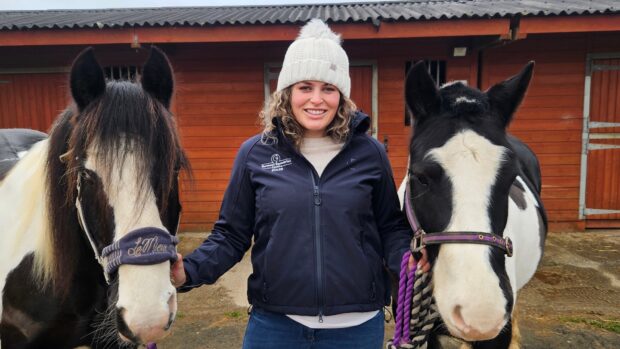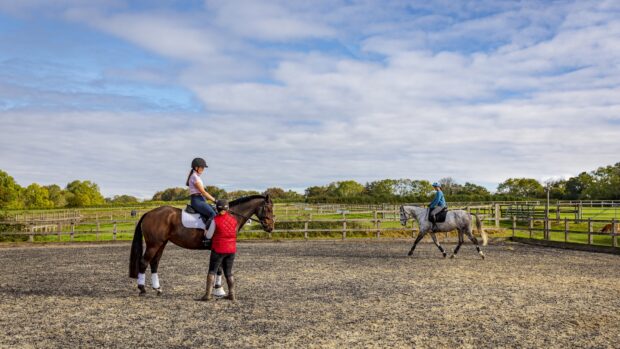The days when children spent all day in the summer soaking up the atmosphere with a tail comb in one hand and a headcollar in the other are long gone.
Now, the vast majority of riding schools have schemes or clubs in place so only trained and supervised children are on the yard. And more centres are opening early or late to accommodate office workers with fixed hours but a hunger to ride.
Flexibility and enterprise are now buzzwords in the riding school industry, both to increase the client base and overcome potentially restrictive legislation regarding “child helpers”.
“The days of slave labour have gone,” says Nicole Douglass, manager of Playbarn Riding Centre in Norwich. “All our helpers are over the age of 13, have a Norwich County Council work permit and are paid the minimum wage.”
Depending on their age, the children can work only a specified number of hours a week. The whole arrangement is more businesslike — parents cannot drop them off at 8am and return at 6pm.
“There is a discipline system. I’ll dock their wages if I’ve found them sitting around doing nothing for an hour — the whole set-up means they have a full job description and understand that they have to turn up for work,” says Nicole, adding: “They enjoy the responsibility they’re given.”
The scheme has become a valuable training ground for staff. Some have graduated from being helpers to taking their NVQ qualifications and becoming full-time employees at Playbarn.
The old “work for rides” culture is on the wane — the threat of an accident leading to litigation is too great.
“So many riding schools in this area have disappeared due to litigation or the fear of it,” explains Nicole. “Children may opt to spend wages on riding lessons, but they don’t get free rides in return for help. If they’re on the yard it’s either because they’re paying me for a lesson or I’m paying them to work.”
One centre has gone the whole hog and opted for full Ofsted (Office for Standards in Education) out-of-school daycare approval. Crimdon Pony World in Hartlepool, Co Durham, is located in the former mining area of Blackhall. Despite its beauty, the area is in one of the country’s most deprived districts.
“We’ve been going for 22 years, but found parents were leaving their children with us all day. We decided to come into line with Ofsted requirements,” explains proprietor Bob Ayre. The Kids’ Club offers before and after school care, a breakfast club and is open throughout the school holidays. “We’re really a commercial/social care organisation — it’s childcare with
riding attached,” says Bob.
Crimdon is probably the UK’s only ABRS-approved and Ofsted-registered riding establishment. That means children as young as four can stay overnight and have a riding holiday. Every member of staff is Criminal Records Bureau-approved. The centre hosts many local foster children and groups from organisations such as the charity Barnado’s. Crimdon is also an RDA centre.
“Through Sure Start [a government programme that aims to give children the best start in life] some of the children help out with the children’s RDA rides,” adds Bob. But even for Crimdon, costs are going up and it does not have grant support or charitable status. “Our prices are going to have go up to keep pace,” admits Bob, who believes Crimdon is cheaper than most riding schools in the area.


